Movies
Interview: Director Frida Kempff on ‘Knocking’
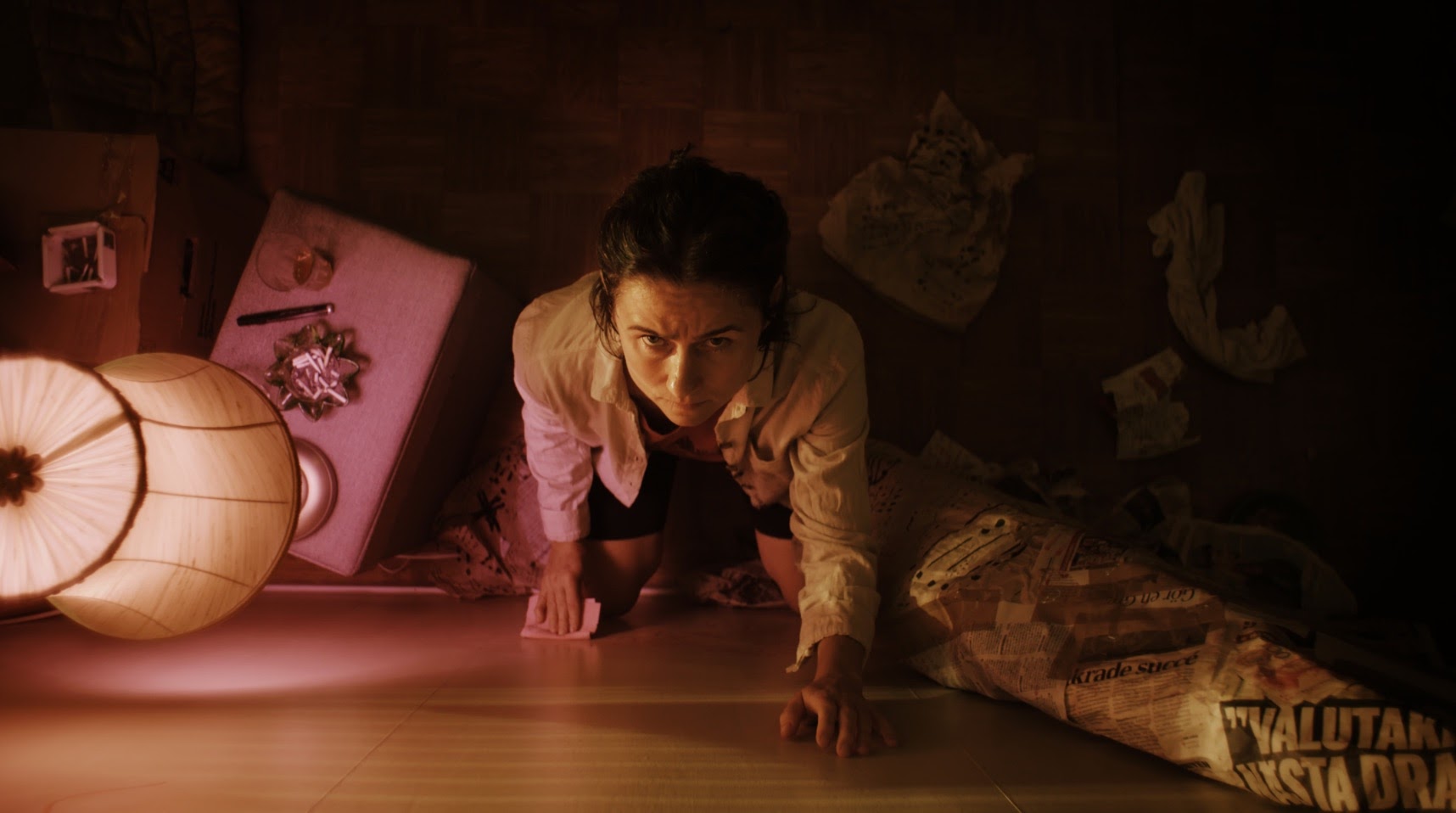
Directed by Frida Kempff, Knocking is a claustrophobic Swedish horror-thriller that drowns itself in colorful, dark tones. Based on the short story, Knocks, the film preys on paranoia and makes its audience feel lonely, concerned, and not quite sure what to expect next.
In the film, after suffering a traumatic incident, Molly (Cecilia Milocco) moves into a new apartment to begin her path to recovery, but it’s not long after her arrival that a series of persistent knocks and screams begin to wake her up at night. Molly’s new life begins to unravel as the screams intensify and no one else in the building believes or is willing to help her.
I had the opportunity to sit down and speak with Kempff about her feature film, civil courage, David Lynch, and the fear of not being believed.
Kelly McNeely: So I understand that it’s an adaptation or based on a short story by Johan Theorin called Knocks. Could you speak a little bit about how you found that story? And what about it really spoke to you?
Frida Kempff: Yeah, I just came across a novel. I’d been doing documentaries before, and I always felt in documentaries, that was something that I lacked as a director, you know, I couldn’t do the whole palette. So when I found the novel, I thought, wow, this is great. Now I can really be creative and work with all the elements, with sound and music and colors and all that. And so I got the permission. And he said, you know, feel free, just go.
And what I really liked with the novel is the theme of not being believed. Especially as a woman, and also the challenge to tell the story more internal than external. And the difficulties. But I like the challenge in that as well, because I think the narrative is kind of short — it’s not long — it’s more, it’s more deep digging narrative in her body and mind more. And that was something that I really wanted to try.
Kelly McNeely: There’s a lot going on there. And I appreciate the themes of gaslighting as well, I think as women we’re all uncomfortably familiar with that. Could you talk a little bit about that? And what the response and reaction has been to the film?
Frida Kempff: I haven’t been able to meet a lot of audience, unfortunately. I’ve done two screenings — pre screenings — here in Sweden. And I’ve said that I think that all woman will or have experienced not being believed. And I can see the whole audience, and half of the audience were women, and I could just see how they were nodding, you know, and the men still didn’t even understand what I was talking about.
And I think that’s something that we all carry with us. And that was also something I wanted to do with Knocking, you know, that men maybe could understand how it can feel, being a woman. And by doing that, really put the audience in Molly’s shoes. And I think a lot of guys understand. You know, is that really true? Is that your experience? I think that in that sense, it has started something in the men’s brain, you know? [laughs] Sometimes it’s hard to explain your words. It’s better to do a film.
Kelly McNeely: I think that it’s sort of a very lonely film, that sort of feeds the paranoia with Molly, and sound and color are used really, really effectively to help communicate that and to help explore that. What was the process like for coordinating all that together, to really make that come across the way it did so profoundly?
Frida Kempff: Yeah, I think that was what was easy. In a way it was easy, because it was only one perspective. So all the departments (of the film) had to follow Molly’s emotional journey. So I came up with the idea of using a color system. So they followed Molly’s temper. We couldn’t film it chronologically, so I talked in colors instead of words. So when I was directing Cecilia (Milocco), I’d say you have to be — I mean, green was to start with, and deep, deep red was the end of the film — and I’d say, no, you’re not red yet, you’re still just purple or something. And the set design and the lights, they follow the same pattern. So yeah, that’s how I built it.
Kelly McNeely: I love what you said about having that range, that scale of being able to gauge where she’s at mentally and emotionally, because you really feel that through the color scheme of the film.
Frida Kempff: Yeah, it’s actually seen when she’s running up to the men, when they had the camera rig on her. She has a shirt that is just white, it’s not red yet. But in the next clip, it’s actually red. She’s really going into the red color in the same shot. It was really sort of fun.
Kelly McNeely: I feel like there’s elements of Rear Window meets Repulsion, in a way, and with the kind of snippets of the past that we sort of catch out of context, which made me think of Sharp Objects a little bit. Were there points of inspiration for you when making Knocking? Could you talk a little bit about those?
Frida Kempff: Yeah, it was for sure, Repulsion. In that sense, I thought it was fresh to have a female point of view, you know, not a Polanski point of view. I think more women should do horror. Because we know how it is, you know? And Rear Window, of course, just watching something and not being sure if you should interfere or not, was interesting. That’s how we live in society, especially in Sweden. I don’t know how it is in the US, but in Sweden, it’s “don’t interfere”. Just mind your own business. And you know, you can hear a scream, but you shouldn’t do anything. So, I thought civil courage was important.
But, yes, Hitchcock and David Lynch, and also Sharp Objects. I’m glad you saw that, that came in the editing process. Because we have her flashbacks from the beach — that was actually just two sequences. But I realized in the first part, that you couldn’t just watch her. You needed to feel her and what she’s gone through. So I had just recently watched Sharp Objects and I thought the fragments of a trauma was really great. So I used that, I just took it [laughs].
Kelly McNeely: I love how it sort of takes things out of context, you catch the emotion behind it, but not necessarily what happened, which kind of makes it more emotional, I think.
Frida Kempff: Yeah. And I think that’s how it is with memories and trauma. You watch something or you smell something and it comes back to you in a glimpse, and then it’s gone.
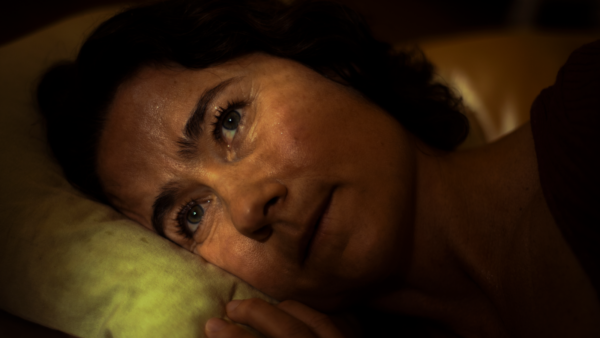
Kelly McNeely: You mentioned how we witness violence and we don’t really say anything, but that’s a really interesting idea. I think that we see these things, and we witness these things, but there’s sort of a social-cultural thing to not say anything, to not intrude, to not get involved. Could you talk a little bit about that, and how that influenced the film?
Frida Kempff: Yeah, I read a lot of news recently about women who’d been abused — especially in the apartments — and neighbors who put on some earplugs because they, you know, have to go to work. “I’m just so tired of her screaming”. And I thought that was awful. Why don’t we do anything? And so this civil courage is so important for me to talk about. And why we don’t do anything. I don’t know if it’s getting worse, or it was better before, I don’t know. But it feels like we have more and more individuals, and we care less about what’s going on around us. So that’s sad. But you know, there’s still hope, we can still do things.
Kelly McNeely: We’ll pick up our phones and get so absorbed in that sometimes. You know, block out what’s going on around you a lot of the time.
Frida Kempff: Yeah. And there’s so much bad news, so you just feel… maybe you get so tired of it. But I mean I think after the pandemic, and all things, I think we have to watch out for each other more. And especially people who are lonely, or have mental illness. You know, say hi, and invite people over for a cup of coffee. Just, you know, see each other.
Kelly McNeely: Now, Molly — Cecilia Milocco. She’s incredible. How did you get her involved, how did you meet her?
Frida Kempff: I actually did a short film with her before called Dear Kid. I think she said, like one sentence or something in the 15 minutes, and she’s actually watching something. She might think that a kid is being abused, but she has no evidence. So she’s more of a witness in the short. And it was a lot about the camera being on her face. And she shows all these expressions without saying anything. So when I found the novel for Knocking, you know, I just knew that she was perfect for the role.
So we’re all there, to build up the trust with each other, but I needed her to push her more in Knocking, of course. And we talked a whole summer before the shooting, not especially about Molly, but more about, you know, what is mental illness? What is to be crazy? How is it to be a woman? And then we picked things from our own experience, and built Molly the character together. She also studied at a psychiatric ward for a day. And she said, I don’t need any more research. Now I got it. I got the role. I got the part. But she’s amazing. She’s amazing. I think she’s born to it, you know.
Kelly McNeely: Just again, her face. And She communicates so much through those little micro expressions, just volumes.
Frida Kempff: Exactly. Yeah. So the only thing that I had to watch out for was to wait with the explosion. “Not now”, you know, because she just wanted to go for it from the start. But “no, not yet. It is enough. I promise you, it is enough” [laughs].
Kelly McNeely: And now what were the challenges of making a film where you are just focused on one person’s perspective, or their perception of events?
Frida Kempff: Hmm. You know, I haven’t done the opposite yet. So I don’t know how it is to work with a big cast. In a way, I thought it was maybe easier, because you just concentrate on one character. The challenge was that she was so alone all the time. She’s in this apartment, like, 80% of the film, and she’s acting against four walls, and how do you do that? So I had some pre-recorded sounds for her, so she could act to that. Also, sometimes I’d scream, so she had something to react to. And yeah, I don’t know the opposite. So I guess it will be interesting to try that [laughs].
We did have some supporting actors. After a week, in comes one person — a supporting actor — and [Cecilia] was like, oh, that’s so funny, I get to speak to you today. What I think — for Cecilia — was a challenge, was to not hear the sounds that I had in my head. I had all this sound in my head all the way through the shooting. But she didn’t have that, of course. So I have to convince her that it’s enough. You know, it’s just you, I will put this sound world together after.
Kelly McNeely: I understand this is your first feature film as sort of narrative, or fictional feature film. Would you have advice for young directors that are wanting to make their first feature, or even more particularly, young female directors that want to break out into genre or that want to work in the industry?
Frida Kempff: Good question. I think you should dig deep into yourself, and what you know. Use your own experience, because when it’s close to you, it becomes honest. That’s my focus. Steal from things, but don’t try to make another Rear Window, because we already have that. I think when you work from yourself and your own perspective and your own view, it becomes unique, and that’s what we want to see.
I also think that it’s good to be stubborn. Because time after time, you fall and you get hit, and people say, oh, it’s so difficult, there goes my chance. But if you love it, just keep going. Go for it and you will find good people to work with, people that can help you. And don’t be afraid to listen to other people. But still have your own vision. It’s a balance.

Kelly McNeely: Now I asked earlier about inspirations for Knocking, but just in a broader sense, do you have a favorite scary movie? Or a favorite movie that you’ve returned to?
Frida Kempff: I grew up in the countryside of Sweden. So we just had governmental channels — it was two channels — and so when I was 11 or 12, I watched Twin Peaks. And that was amazing. It was so scary. I remember we had a tree outside, because it was a farm, and you know, the Lynch tree and the music that goes through it? It was so scary. And I felt I was in the Lynch film. It’s amazing how we can work with old elements. And I’d never seen that before. So I will always remember that, I think he’s amazing.
But then I watched a lot of bad horror movies during my teenage years. So I thought I didn’t like it. And then actually, when I watched Jordan Peele’s Get Out, it came back to me. How you actually can say something about the world we live in as a society and all that, I think it’s amazing. That’s what I love about those kinds of movies.
Kelly McNeely: And I think there’s something that’s so terrifying about the idea of not being believed. Again, having everyone be like, no, no, no, no, no, this is fine, this is fine, and knowing deep down that something is not right. And I think there’s a lot of really great horror movies with an understanding of that fear, that really plays off that fear, and Get Out definitely does that.
Frida Kempff: And people that are watching horror are really good film people. They have this imagination that is wonderful. I think that’s different from a drama audience, you know, it has to be real and realistic and everything, but in horror, it’s magic. And they can always just follow you in that magic.
Kelly McNeely: Yeah, absolutely. If there’s a Sharknado, people will just go with it.
Frida Kempff: Yes, yes, absolutely. We go with that [laughs]. Yeah. I love that.
Kelly McNeely: So what’s next for you?
Frida Kempff: Next is actually something totally different. It’s a it’s a feminist period piece. So it’s set a year before the second world war starts. It’s based on a true story about a Swedish swimmer who swam the English Channel three days before the war started. It’s called The Swedish Torpedo. Because she swam so fast she was a torpedo. But I think I will use elements from the genre in it as well. I’ll take that with me.
Written by Emma Broström and starring Cecilia Milocco, Knocking is available on Digital and On Demand. For our full review of the film, click here!
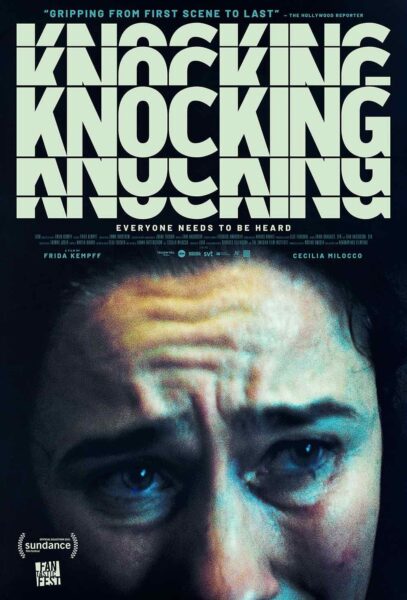
'Civil War' Review: Is It Worth Watching?
Follow our new YouTube channel "Mysteries and Movies" here.
Movies
‘Evil Dead’ Film Franchise Getting TWO New Installments
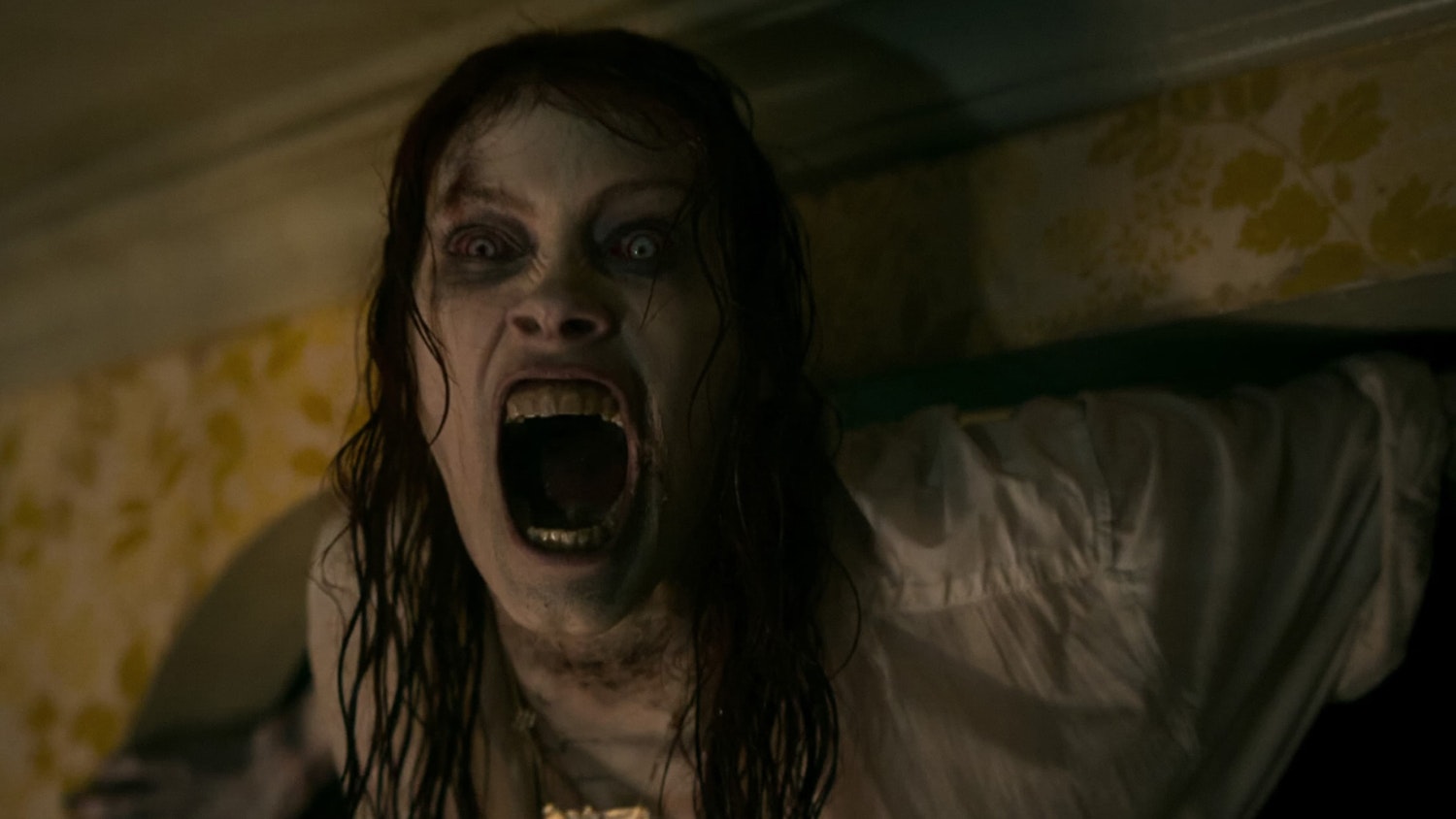
It was a risk for Fede Alvarez to reboot Sam Raimi’s horror classic The Evil Dead in 2013, but that risk paid off and so did its spiritual sequel Evil Dead Rise in 2023. Now Deadline is reporting that the series is getting, not one, but two fresh entries.
We already knew about the Sébastien Vaniček upcoming film that delves into the Deadite universe and should be a proper sequel to the latest film, but we are broadsided that Francis Galluppi and Ghost House Pictures are doing a one-off project set in Raimi’s universe based off of an idea that Galluppi pitched to Raimi himself. That concept is being kept under wraps.
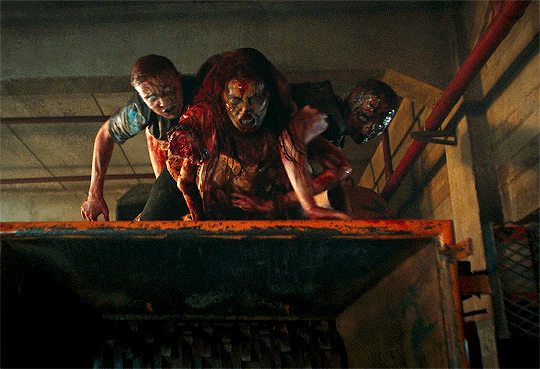
“Francis Galluppi is a storyteller who knows when to keep us waiting in simmering tension and when to hit us with explosive violence,” Raimi told Deadline. “He is a director that shows uncommon control in his feature debut.”
That feature is titled The Last Stop In Yuma County which will release theatrically in the United States on May 4. It follows a traveling salesman, “stranded at a rural Arizona rest stop,” and “is thrust into a dire hostage situation by the arrival of two bank robbers with no qualms about using cruelty-or cold, hard steel-to protect their bloodstained fortune.”
Galluppi is an award-winning sci-fi/horror shorts director whose acclaimed works include High Desert Hell and The Gemini Project. You can view the full edit of High Desert Hell and the teaser for Gemini below:
'Civil War' Review: Is It Worth Watching?
Follow our new YouTube channel "Mysteries and Movies" here.
Movies
Fede Alvarez Teases ‘Alien: Romulus’ With RC Facehugger
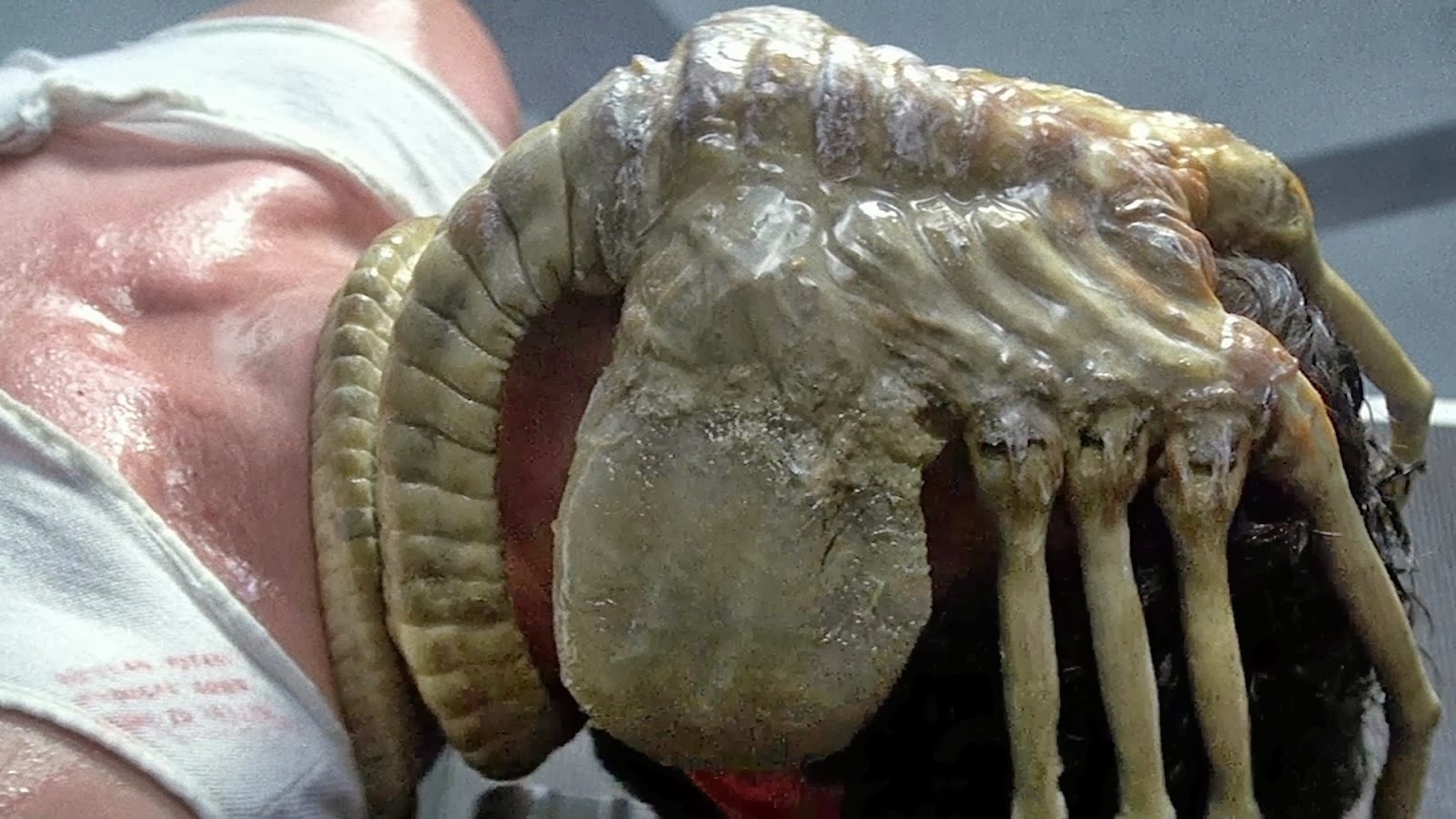
Happy Alien Day! To celebrate director Fede Alvarez who is helming the latest sequel in the Alien franchise Alien: Romulus, got out his toy Facehugger in the SFX workshop. He posted his antics on Instagram with the following message:
“Playing with my favorite toy on set of #AlienRomulus last summer. RC Facehugger created by the amazing team from @wetaworkshop Happy #AlienDay everybody!”
To commemorate the 45th anniversary of Ridley Scott’s original Alien movie, April 26 2024 has been designated as Alien Day, with a re-release of the film hitting theaters for a limited time.
Alien: Romulus is the seventh film in the franchise and is currently in post-production with a scheduled theatrical release date of August 16, 2024.
In other news from the Alien universe, James Cameron has been pitching fans the boxed set of Aliens: Expanded a new documentary film, and a collection of merch associated with the movie with pre-sales ending on May 5.
'Civil War' Review: Is It Worth Watching?
Follow our new YouTube channel "Mysteries and Movies" here.
Movies
‘Invisible Man 2’ Is “Closer Than Its Ever Been” to Happening

Elisabeth Moss in a very well-thought-out statement said in an interview for Happy Sad Confused that even though there have been some logistical issues for doing Invisible Man 2 there is hope on the horizon.
Podcast host Josh Horowitz asked about the follow-up and if Moss and director Leigh Whannell were any closer to cracking a solution to getting it made. “We are closer than we have ever been to cracking it,” said Moss with a huge grin. You can see her reaction at the 35:52 mark in the below video.
Whannell is currently in New Zealand filming another monster movie for Universal, Wolf Man, which might be the spark that ignites Universal’s troubled Dark Universe concept which hasn’t gained any momentum since Tom Cruise’s failed attempt at resurrecting The Mummy.
Also, in the podcast video, Moss says she is not in the Wolf Man film so any speculation that it’s a crossover project is left in the air.
Meanwhile, Universal Studios is in the middle of constructing a year-round haunt house in Las Vegas which will showcase some of their classic cinematic monsters. Depending on attendance, this could be the boost the studio needs to get audiences interested in their creature IPs once more and to get more films made based on them.
The Las Vegas project is set to open in 2025, coinciding with their new proper theme park in Orlando called Epic Universe.
'Civil War' Review: Is It Worth Watching?
Follow our new YouTube channel "Mysteries and Movies" here.
-
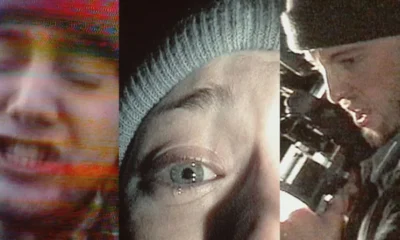
 News6 days ago
News6 days agoOriginal Blair Witch Cast Ask Lionsgate for Retroactive Residuals in Light of New Film
-
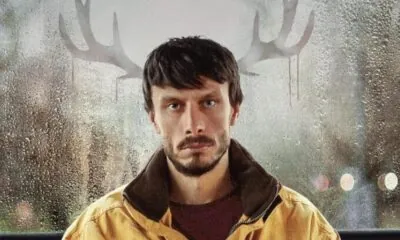
 News4 days ago
News4 days agoPerhaps the Scariest, Most Disturbing Series of The Year
-

 Movies5 days ago
Movies5 days agoNew F-Bomb Laden ‘Deadpool & Wolverine’ Trailer: Bloody Buddy Movie
-
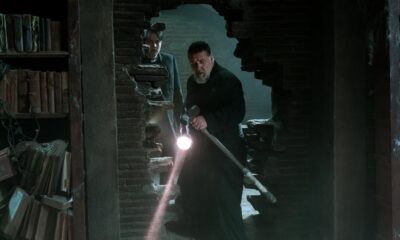
 News5 days ago
News5 days agoRussell Crowe To Star in Another Exorcism Movie & It’s Not a Sequel
-

 Lists4 days ago
Lists4 days agoThrills and Chills: Ranking ‘Radio Silence’ Films from Bloody Brilliant to Just Bloody
-
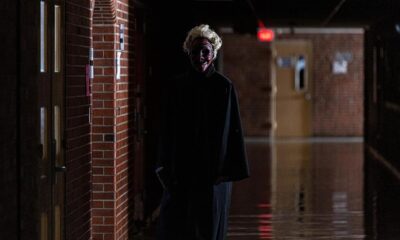
 Movies5 days ago
Movies5 days ago‘Founders Day’ Finally Getting a Digital Release
-
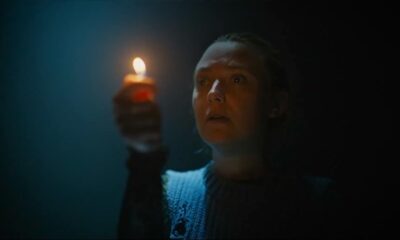
 Movies5 days ago
Movies5 days agoNew ‘The Watchers’ Trailer Adds More to the Mystery
-

 Movies4 days ago
Movies4 days agoThe Original ‘Beetlejuice’ Sequel Had an Interesting Location
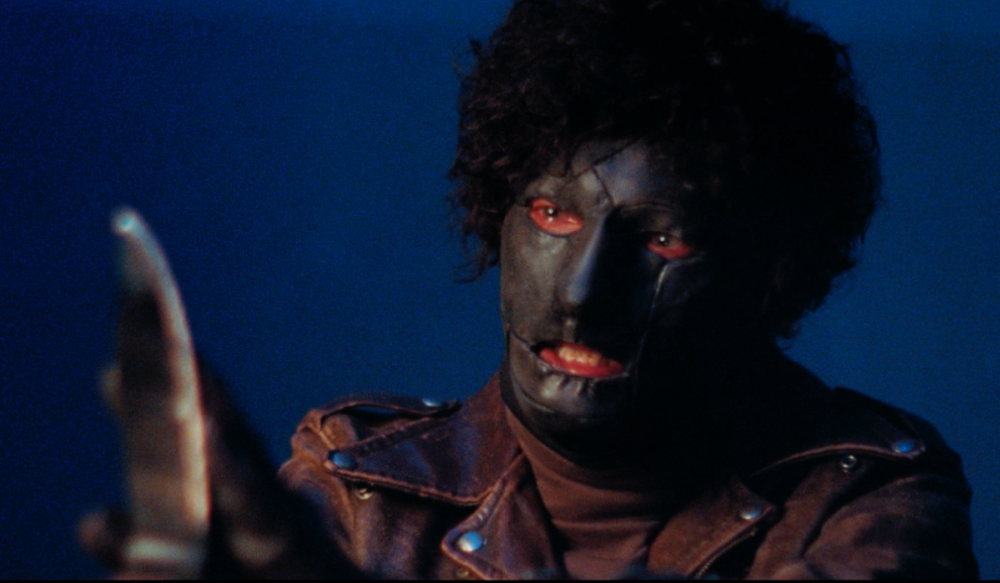
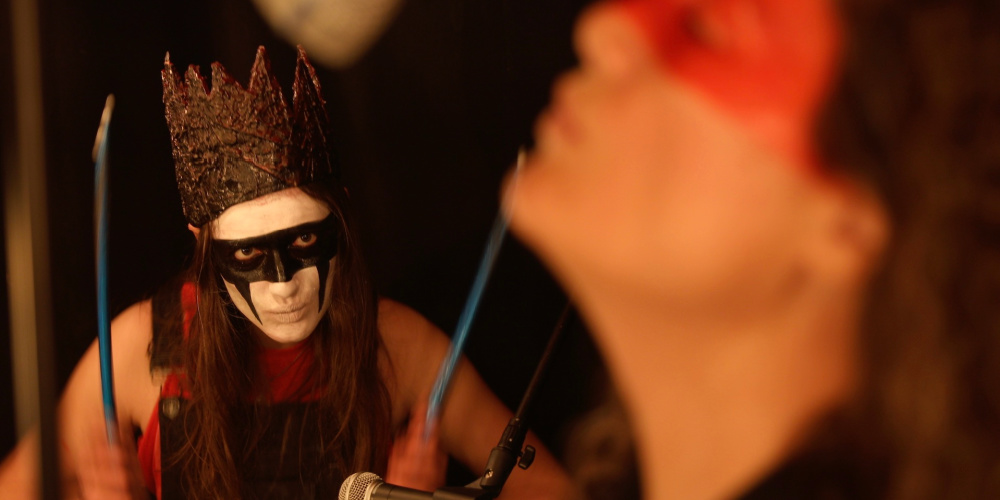
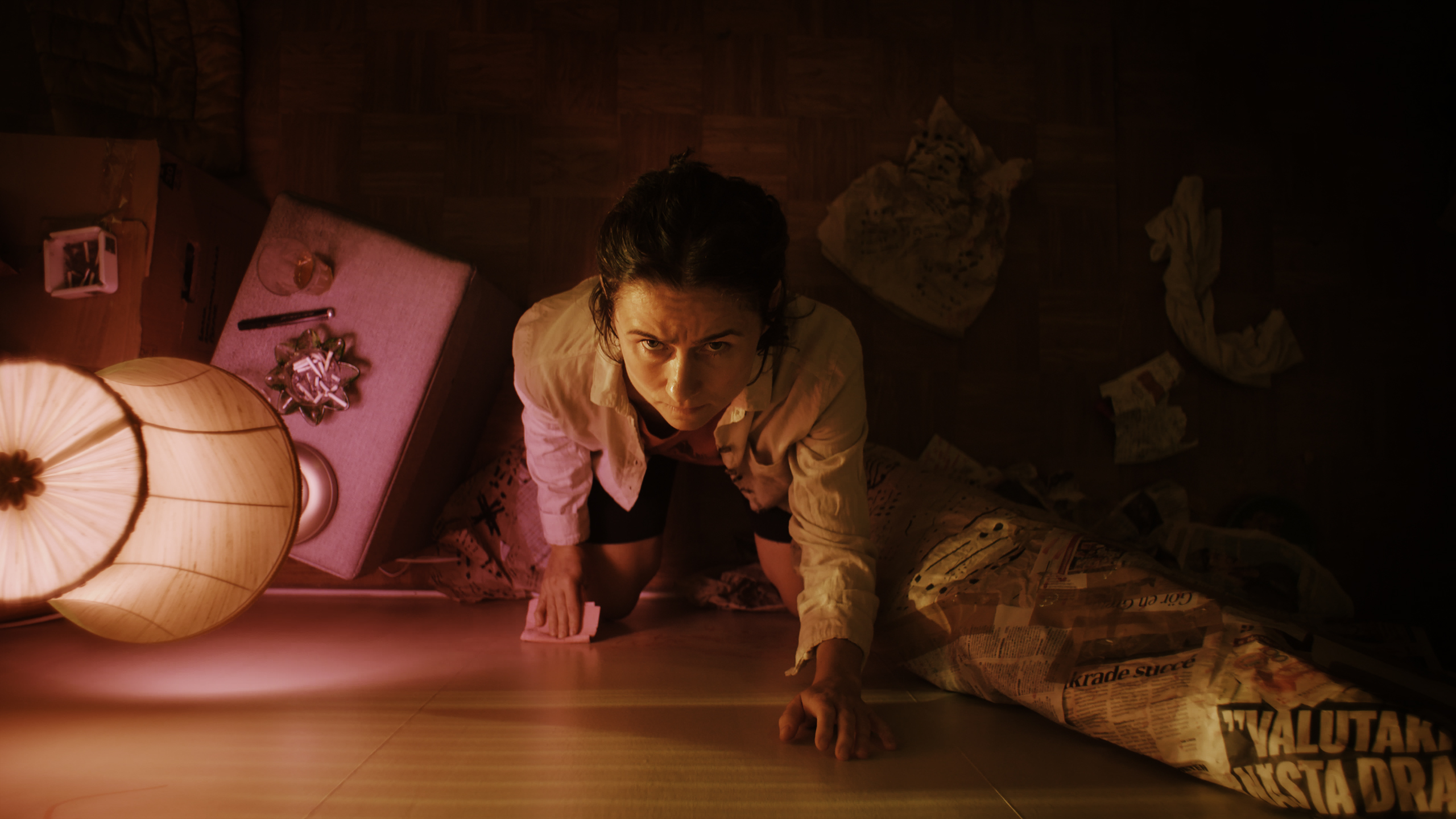

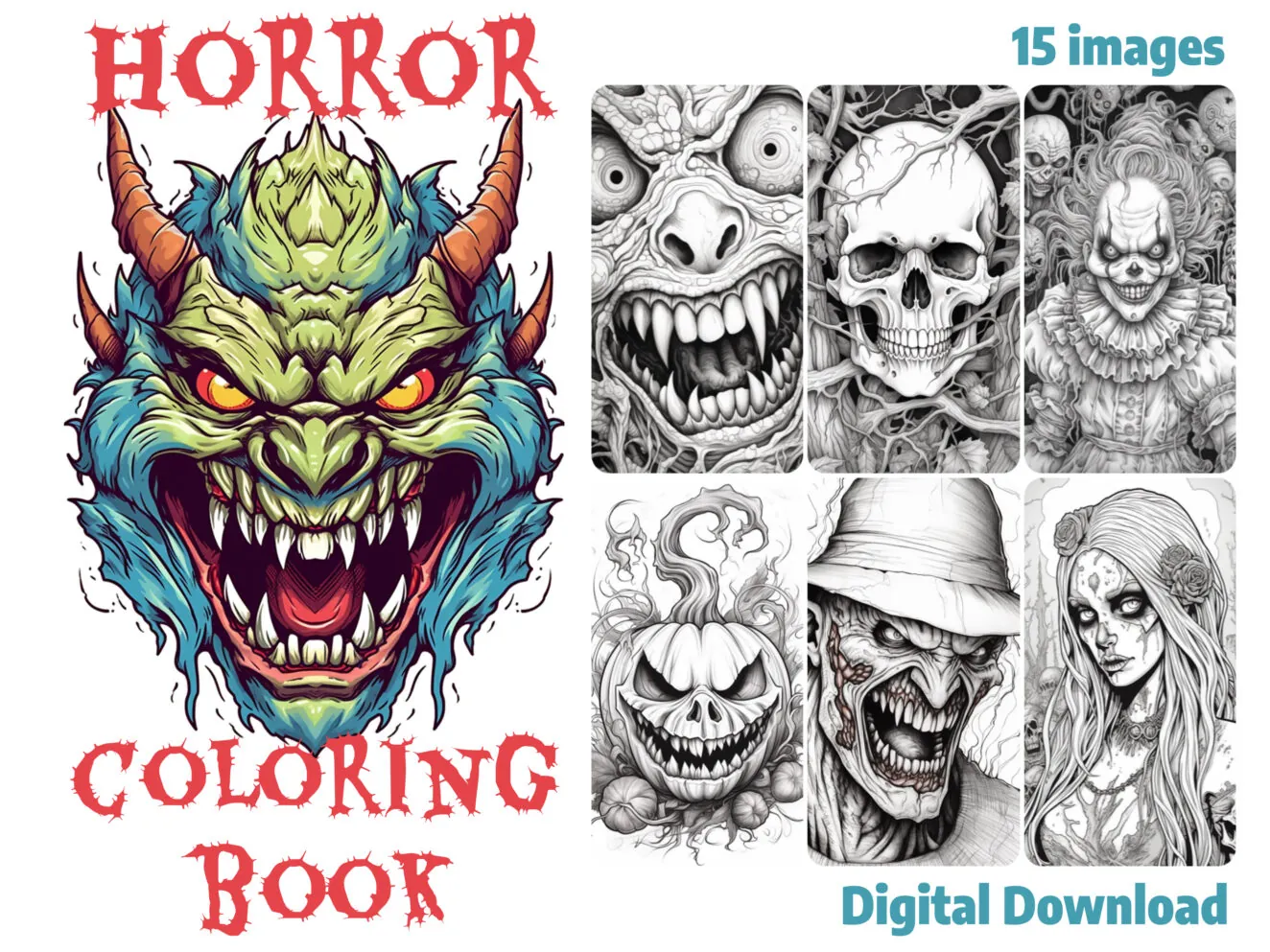
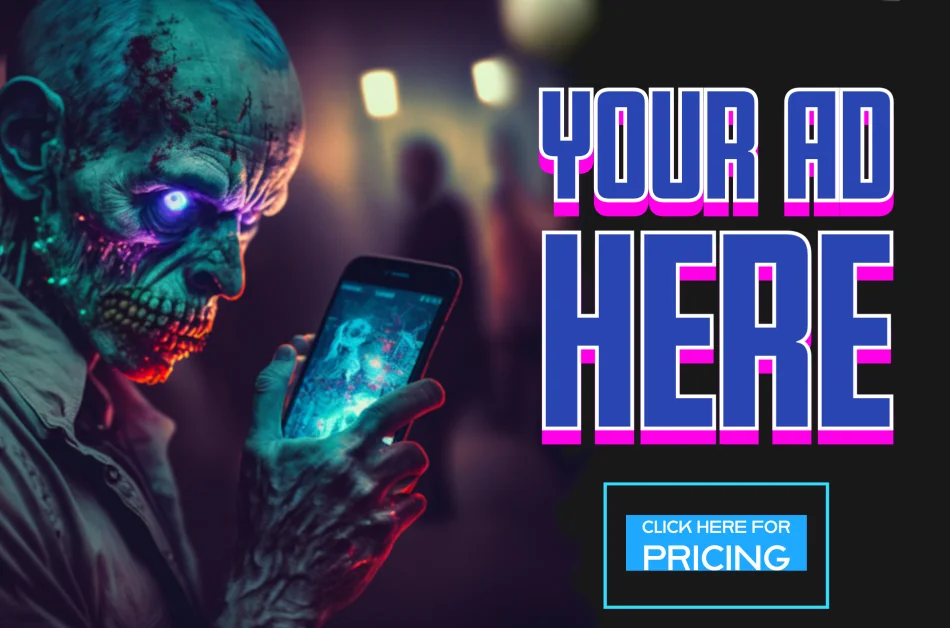




















You must be logged in to post a comment Login